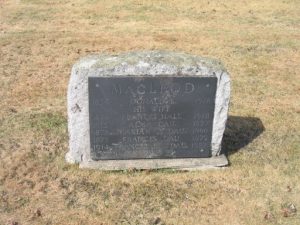 Some of my ancestors are just plain pesky. We all have them, those ancestors who refuse, for seemingly no good reason other than to annoy us, to cooperate with our efforts to document them. For years I had tried to verify the parents of my maternal great-grandfather, Daniel McLeod, without any success. That he was born in New Brunswick, Canada in 1834 without any known church affiliation did nothing to help. Communications with the helpful staff at the Provincial Archives proved to me that I did not have enough information for a specific search of church birth records, so I searched all available church records, still without success. Continue reading Pesky people
Some of my ancestors are just plain pesky. We all have them, those ancestors who refuse, for seemingly no good reason other than to annoy us, to cooperate with our efforts to document them. For years I had tried to verify the parents of my maternal great-grandfather, Daniel McLeod, without any success. That he was born in New Brunswick, Canada in 1834 without any known church affiliation did nothing to help. Communications with the helpful staff at the Provincial Archives proved to me that I did not have enough information for a specific search of church birth records, so I searched all available church records, still without success. Continue reading Pesky people
Category Archives: Family Stories
Arranging your family papers, part 2
[Editor’s note: This series began here.]
 When I begin organizing a collection, I start with a quick survey to help determine what types of material are in the collection. For me, this involves listing the formats in the collection, identifying the creators (if it is a collection of family papers), and the general years of the material. I also make note of any torn/damaged records, as I prefer to know about them before I start moving things around and possibly separate the pieces or completely tearing an item that only had a small tear because it snags on something. Continue reading Arranging your family papers, part 2
When I begin organizing a collection, I start with a quick survey to help determine what types of material are in the collection. For me, this involves listing the formats in the collection, identifying the creators (if it is a collection of family papers), and the general years of the material. I also make note of any torn/damaged records, as I prefer to know about them before I start moving things around and possibly separate the pieces or completely tearing an item that only had a small tear because it snags on something. Continue reading Arranging your family papers, part 2
Finding your roots
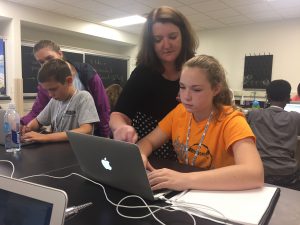
Recently, I had the opportunity to drive through the breathtaking Pennsylvania countryside to teach a group of middle schoolers about family history and genealogy at Penn State University. The kids were attending a genetics and genealogy summer camp cleverly named “Finding Your Roots: The Seedlings,” where the primary goal was to stimulate interest in science by getting kids to study themselves – their DNA, their bodies, and their family histories – as scientists. Continue reading Finding your roots
Flower power
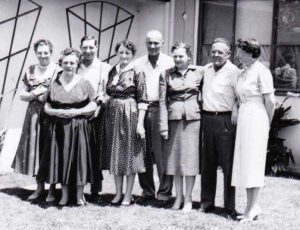
Sometimes in the course of studying family history it helps when the right sort of inspiration knocks at our door. Blog sites like Vita Brevis and different forms of social media allow ways for like minded people of similar genealogical concerns to reach out to one another. And while I would not exactly consider Findagrave.com a “social networking site,” a recent experience reminds me that the inspiration to study family history can come from many different sources.
Seven years ago, I placed virtual flowers on-line for the memorial to my great-uncle Ernest Bedford Payne (1902–1970).[1] I find placing virtual flowers on findagrave memorials does two things: (a) it allows me to pay respect to my loved ones, and (b) allows me a trail of bread crumbs letting me know if I have previously visited a memorial I might not readily remember the next time around. I must confess I hadn’t been back to visit Uncle Ernest’s memorial in quite a while. Continue reading Flower power
Arranging your family papers
 While my article about arranging your family papers in the winter edition of American Ancestors was meant to provide readers with the sense that they could preserve their collections on their own, I thought it would be helpful to go back and provide information that had to be removed from earlier drafts, beginning with defining some of the archival terms that I used.
While my article about arranging your family papers in the winter edition of American Ancestors was meant to provide readers with the sense that they could preserve their collections on their own, I thought it would be helpful to go back and provide information that had to be removed from earlier drafts, beginning with defining some of the archival terms that I used.
The first word that I use is “record/s.” As genealogists, we are used to identifying a record by the purpose for which it was created, such as vital records or census records. The Society of American Archivists (SAA) lists multiple definitions of what an archival record is, but the basic definition that applies to family papers is: Continue reading Arranging your family papers
Sisters as sources
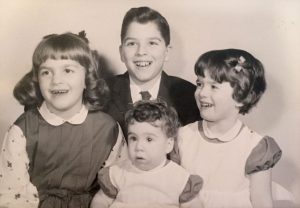
Each year, on the first Sunday in August, we celebrate National Sisters Day. Growing up together, we often take our sisters for granted. The older we become, the more we tend to cherish our shared experiences and the more we realize that our sisters (and the sisters in each generation) may hold the keys to learning more about our direct ancestors.
My sister and I share responsibilities as memory keepers for our family – but in unique ways. Continue reading Sisters as sources
Never mentioned
“Some secrets never leave us alone…” – Diane Capri
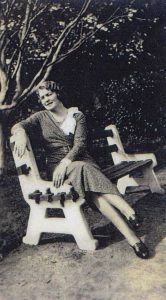
In my father’s house, there was a subject we were forbidden to speak of. This was the subject of my grandmother’s adoption and her biological mother.[i] Under pain of reprisal, we were told never to speak of it – or of her. We didn’t even know her name, and what leaked through the hushed whispers of grown-up conversation was not murmured with much kindness.
The secret of grandmother’s adoption was the order of the day as long as my adopted great-grandmother was living. My great-grandmother was greatly revered, so for us to cause her any duress would rank as an unforgivable transgression. These “never to mention” rules stayed in effect long after my great-grandmother’s death in 1970 – though this maxim certainly didn’t stop the budding genealogist in me from finding new angles to find out the truth behind the whispers. Continue reading Never mentioned
A family celebration
 My mother, in the process of reorganizing her office, recently gave me a stack of family pictures and documents. I had already seen many of these photos of her parents and grandparents, but there was one that was unfamiliar and amazing: a large photo of my grandfather’s Bar Mitzvah dinner held on 16 November 1913.
My mother, in the process of reorganizing her office, recently gave me a stack of family pictures and documents. I had already seen many of these photos of her parents and grandparents, but there was one that was unfamiliar and amazing: a large photo of my grandfather’s Bar Mitzvah dinner held on 16 November 1913.
I didn’t even know that my grandfather had a Bar Mitzvah, but Herman Oscar Bornstein, born 12 November 1900, was celebrating at what looked like a very fancy dinner. Continue reading A family celebration
The long way home
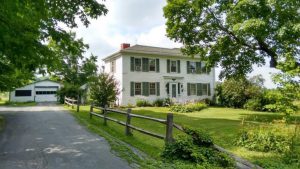 A few years ago, when I first began to make quiet rumblings about selling My Old House and moving closer to my son, most people reacted with horror, surprise, and objections: “You wouldn’t really!” “Would you really sell it?” “What would your father, mother, grandparents say?” “Good Grief, sell your Old House?!”
A few years ago, when I first began to make quiet rumblings about selling My Old House and moving closer to my son, most people reacted with horror, surprise, and objections: “You wouldn’t really!” “Would you really sell it?” “What would your father, mother, grandparents say?” “Good Grief, sell your Old House?!”
I would. I will! (Cash and certified checks accepted!) Continue reading The long way home
‘Every thing the world can offer’

61 Bowdoin Street, Boston, Sunday, 8 January 1865: A bitter cold day – thermom. at 6 this a.m. A warm profuse rain all Friday night turned into a storm of hail, snow, & sleet yesterday – and a clear, cold winter moon was shining out when we retired for the night last evg. Sam [Gray][2] and I have been housed for some days with severe colds – and I have been busy sewing with the dressmaker &c. all the week.
We hear good accounts from dear Regie [Gray].[3] His cough scarcely troubles him at all – and he is very happy. They are doing tout leur possible to make him contented. A gymnasium and workroom are fitted up in the attic for him, the yard is flooded nightly for his slides. Continue reading ‘Every thing the world can offer’